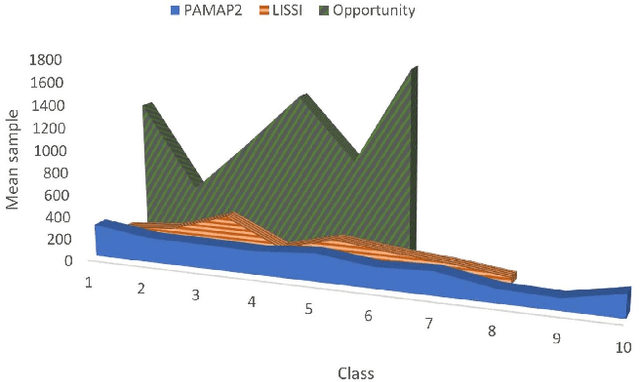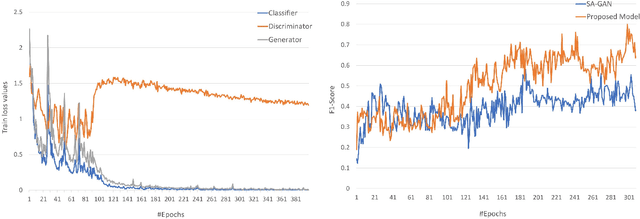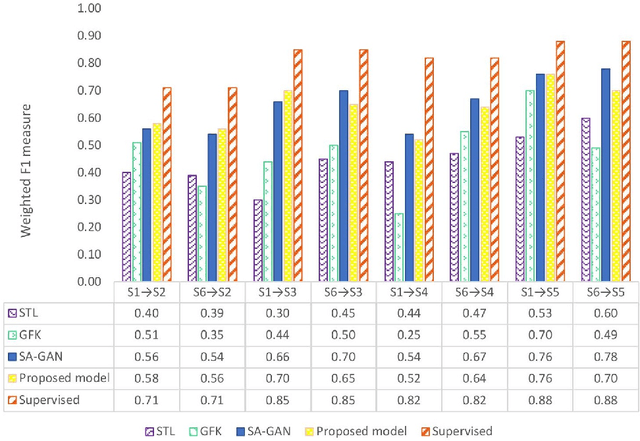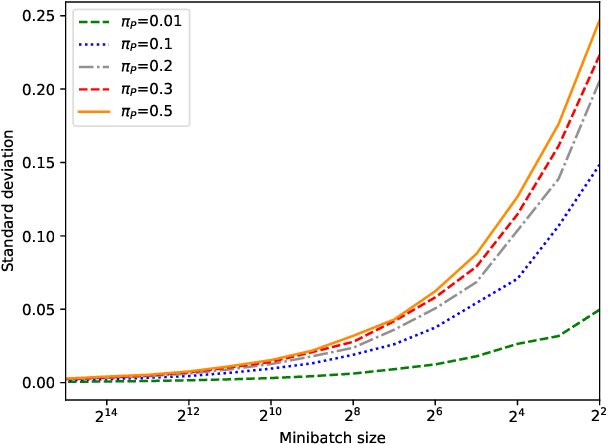Ghazaleh Khodabandelou
A Novel Stochastic Transformer-based Approach for Post-Traumatic Stress Disorder Detection using Audio Recording of Clinical Interviews
Mar 28, 2024Abstract:Post-traumatic stress disorder (PTSD) is a mental disorder that can be developed after witnessing or experiencing extremely traumatic events. PTSD can affect anyone, regardless of ethnicity, or culture. An estimated one in every eleven people will experience PTSD during their lifetime. The Clinician-Administered PTSD Scale (CAPS) and the PTSD Check List for Civilians (PCL-C) interviews are gold standards in the diagnosis of PTSD. These questionnaires can be fooled by the subject's responses. This work proposes a deep learning-based approach that achieves state-of-the-art performances for PTSD detection using audio recordings during clinical interviews. Our approach is based on MFCC low-level features extracted from audio recordings of clinical interviews, followed by deep high-level learning using a Stochastic Transformer. Our proposed approach achieves state-of-the-art performances with an RMSE of 2.92 on the eDAIC dataset thanks to the stochastic depth, stochastic deep learning layers, and stochastic activation function.
Generic Semi-Supervised Adversarial Subject Translation for Sensor-Based Human Activity Recognition
Nov 11, 2020



Abstract:The performance of Human Activity Recognition (HAR) models, particularly deep neural networks, is highly contingent upon the availability of the massive amount of annotated training data which should be sufficiently labeled. Though, data acquisition and manual annotation in the HAR domain are prohibitively expensive due to skilled human resource requirements in both steps. Hence, domain adaptation techniques have been proposed to adapt the knowledge from the existing source of data. More recently, adversarial transfer learning methods have shown very promising results in image classification, yet limited for sensor-based HAR problems, which are still prone to the unfavorable effects of the imbalanced distribution of samples. This paper presents a novel generic and robust approach for semi-supervised domain adaptation in HAR, which capitalizes on the advantages of the adversarial framework to tackle the shortcomings, by leveraging knowledge from annotated samples exclusively from the source subject and unlabeled ones of the target subject. Extensive subject translation experiments are conducted on three large, middle, and small-size datasets with different levels of imbalance to assess the robustness and effectiveness of the proposed model to the scale as well as imbalance in the data. The results demonstrate the effectiveness of our proposed algorithms over state-of-the-art methods, which led in up to 13%, 4%, and 13% improvement of our high-level activities recognition metrics for Opportunity, LISSI, and PAMAP2 datasets, respectively. The LISSI dataset is the most challenging one owing to its less populated and imbalanced distribution. Compared to the SA-GAN adversarial domain adaptation method, the proposed approach enhances the final classification performance with an average of 7.5% for the three datasets, which emphasizes the effectiveness of micro-mini-batch training.
Generating Relevant Counter-Examples from a Positive Unlabeled Dataset for Image Classification
Oct 04, 2019



Abstract:With surge of available but unlabeled data, Positive Unlabeled (PU) learning is becoming a thriving challenge. This work deals with this demanding task for which recent GAN-based PU approaches have demonstrated promising results. Generative adversarial Networks (GANs) are not hampered by deterministic bias or need for specific dimensionality. However, existing GAN-based PU approaches also present some drawbacks such as sensitive dependence to prior knowledge, a cumbersome architecture or first-stage overfitting. To settle these issues, we propose to incorporate a biased PU risk within the standard GAN discriminator loss function. In this manner, the discriminator is constrained to request the generator to converge towards the unlabeled samples distribution while diverging from the positive samples distribution. This enables the proposed model, referred to as D-GAN, to exclusively learn the counter-examples distribution without prior knowledge. Experiments demonstrate that our approach outperforms state-of-the-art PU methods without prior by overcoming their issues.
 Add to Chrome
Add to Chrome Add to Firefox
Add to Firefox Add to Edge
Add to Edge